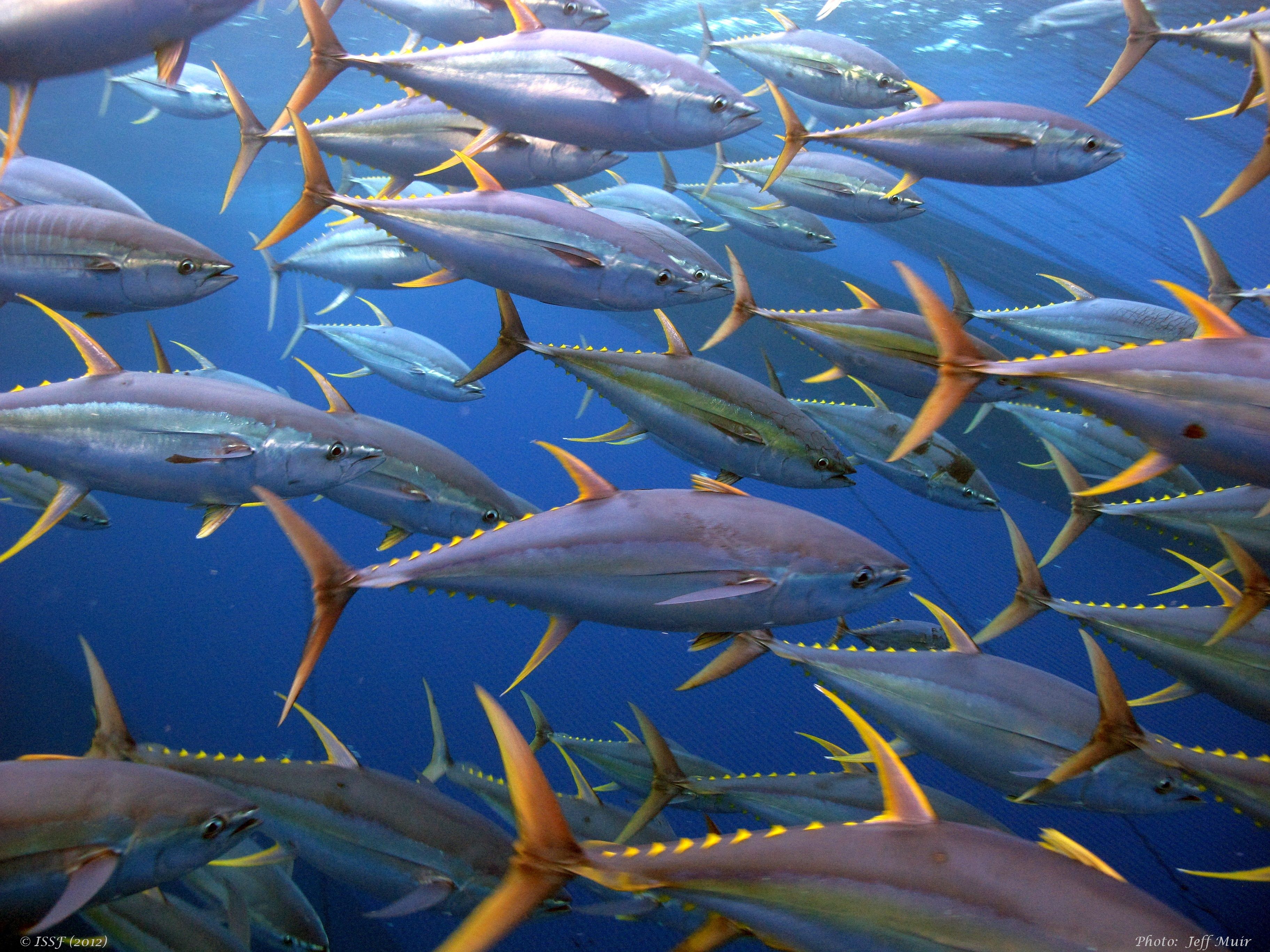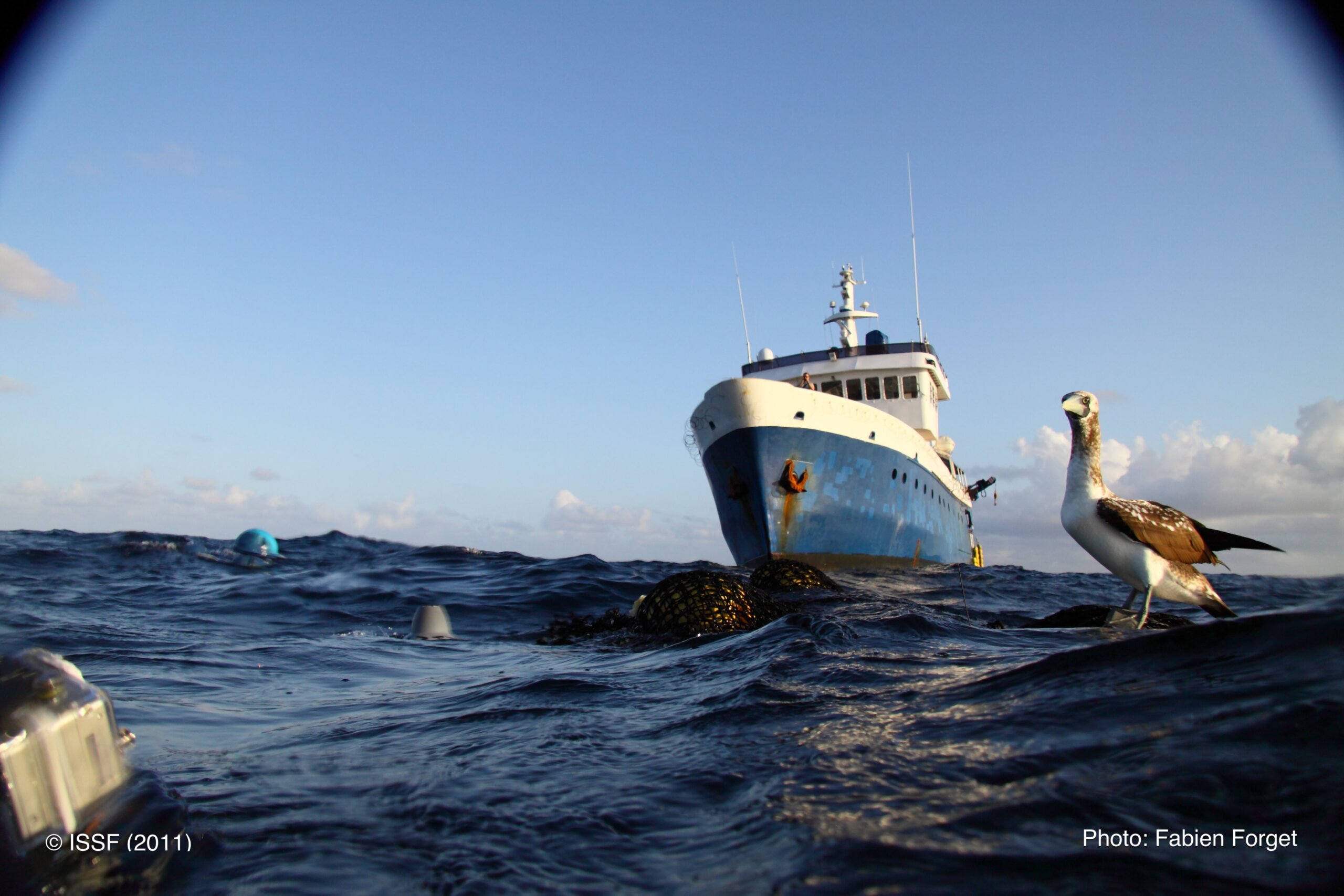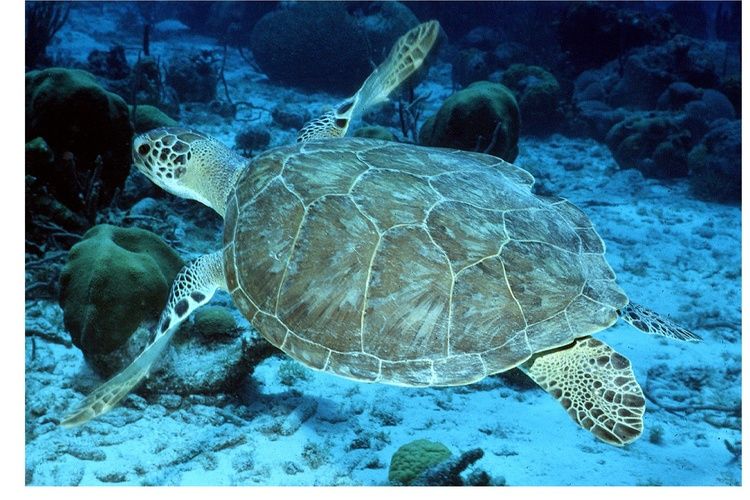
ISSF & WWF to IOTC
Posted by Claire van der Geest & Umair Shahid
Indian Ocean Tuna Commission (IOTC) Member States will soon commence their 23rd session, and the rebuilding of the overfished Indian Ocean yellowfin tuna stock is a central and critical item on the agenda—again. It is high time that the IOTC adopt, and its Member States implement, a yellowfin conservation and management measure based squarely on the recommendations and advice of the IOTC’s own Scientific Committee.
Of the 4.8 million tonnes of major commercial tuna caught globally, twenty-eight percent is yellowfin tuna, second only to skipjack. Yellowfin comprises a large portion of the annual tuna catch in the Indian Ocean and scientists continue to classify Indian Ocean yellowfin tuna as being overfished and subject to overfishing.
This stock status is the result of multiple factors. First, the IOTC adopted an interim rebuilding measure that did not require as much of a catch reduction as was recommended by the IOTC Scientific Committee. (The Committee recommended a reduction that would achieve stock rebuilding by 2024 with at least 50% probability.) Then, as the adopted interim measure has been put into practice—with increases in catches by some fleets and a failure by other fleets to meet obligations for catch reductions—it has actually resulted in an overall increase (three per cent) in yellowfin catch. That’s a perilous situation for a stock that has been subjected to fishing pressures exceeding sustainable levels.
So how do we rebuild the stock? The Commission must agree to adopt management measures that actually reduce the amount of fishing mortality, thereby reducing the amount of yellowfin tuna caught in the Indian Ocean. Together at ISSF and WWF, we are urging IOTC to:
- Adopt an effective rebuilding plan for yellowfin tuna that gives full effect to the advice of the IOTC Scientific Committee.
- Specifically, a plan that achieves spawning biomass of BMSY by 2024 with at least 50% probability, including through management options like time/area closures (e.g., FAD closures or total closures). These options must be based on the scientific advice, and ensure all gears harvesting yellowfin are taken into account.
- Revise overall catch reductions to improve rebuilding potential and address the current circumstances that allow for growth in some fishery sectors.
- Ensure IOTC Contracting Party and Cooperating Non-Contracting Party (CPC) compliance with the rebuilding plan through the IOTC Compliance Committee.
ISSF and WWF want to see rigorous management because yellowfin tuna is vital for food security both inside and outside the region and for economic development particularly of Indian Ocean coastal States.
Further, in addition to other priorities like enhancing FAD management, progressing harvest strategies for all tuna stocks and strengthening bycatch measures, ISSF and WWF will be working diligently with IOTC members and other stakeholders to strengthen the suite of IOTC monitoring, control and surveillance (MCS) measures.
We are focused specifically this year on: (1) strengthening the IOTC vessel monitoring system and (2) enhancing the IOTC regional observer program in line with best practices. Today, we have more opportunities, in the form of alternate data collection mechanisms like electronic reporting and monitoring, which must be incorporated within the regional observer scheme (ROS) programme of work to enable data collection that supports effective monitoring of adopted measures and the ability of the IOTC to make informed management decisions.
The IOTC Member States cannot repeat the past and adopt an ineffective and weak yellowfin measure—a measure that resulted only in the further declines to the status of the stock. ISSF and WWF call upon IOTC to adopt an effective rebuilding plan for yellowfin tuna that gives full effect to the advice of the IOTC Scientific Committee and strengthen its MCS tools to ensure this valuable tuna resource is available for future generations.
Claire van der Geest is Strategic Policy Advisor for ISSF and Umair Shahid is the Indian Ocean Tuna Manager at World Wide Fund for Nature (WWF).


